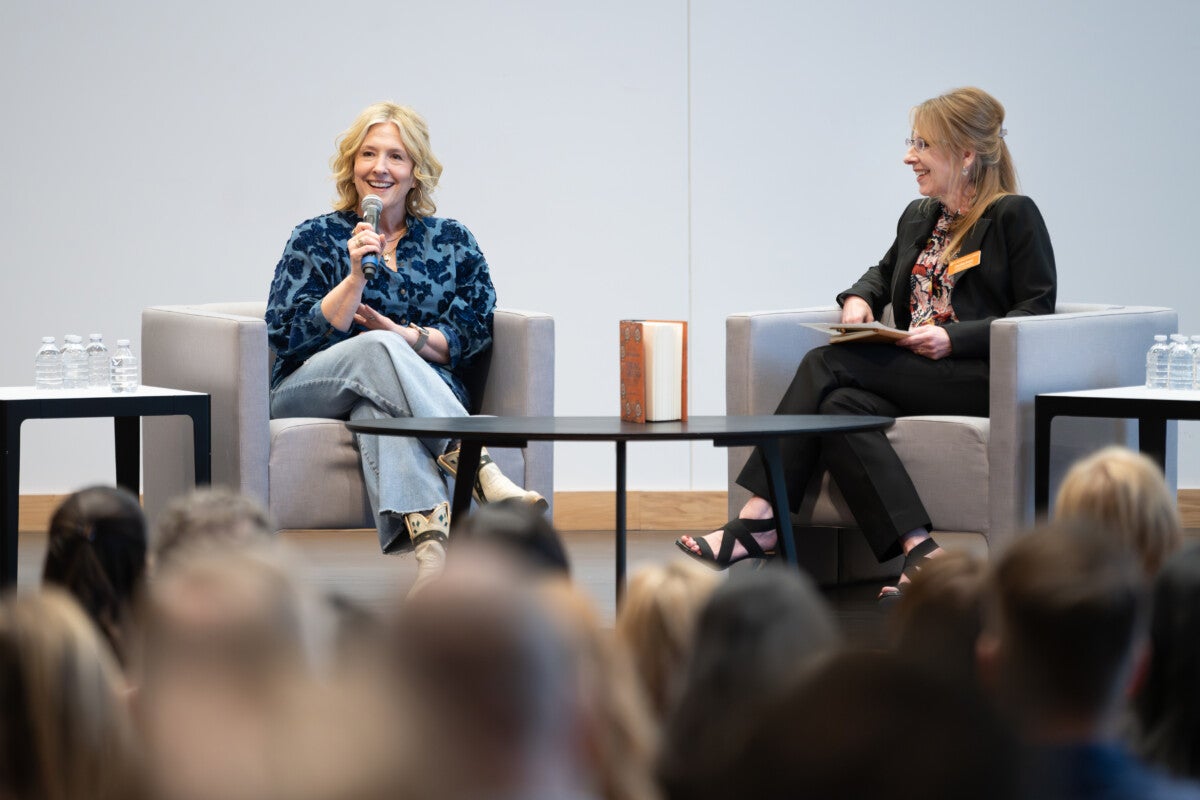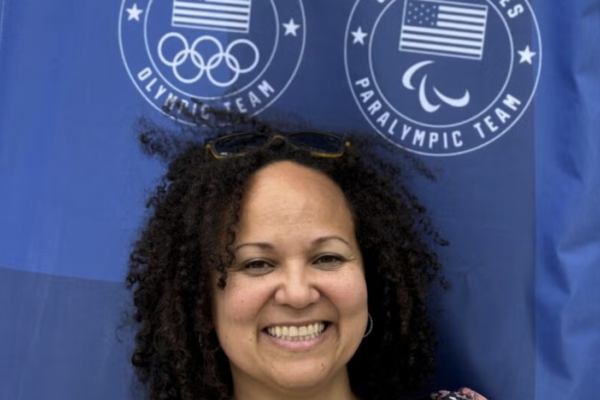Finding Strong Ground
In an age of unprecedented uncertainty, Brené Brown says, ‘Don’t build on dysfunction’
Texas McCombs Professor of Practice in Management Brené Brown, UT ’95, shared research-backed insights on leading with courage, clarity, and care as current paradigms shift dramatically in today’s business world. Speaking at the McCombs Business Innovations for the Future conference Sept. 19, Brown and Rosenthal Department of Management Chair Caroline Bartel discussed how, in the face of both unprecedented opportunity and overwhelming disorientation, successful leaders must build organizational cultures marked by trust and resilience.
Brown, a bestselling author, researcher, and the founder of “Dare to Lead,” a program she has facilitated with more than 150,000 leaders in 45 countries, used her latest book, “Strong Ground,” as a touchstone for the conversation at The University of Texas at Austin. Inspired by her recovery from a sports injury, she drew parallels between physical therapy and leadership, saying the lessons apply to how organizations handle the challenges of the modern workplace.
“One of the principles I learned was, don’t build on dysfunction,” Brown said. “If you try to patch over broken systems, the whole organization suffers. Leaders have to dig into the root issues instead of layering on quick fixes.”

She said this was especially important in times of growing instability, personal disconnection, and the disorienting integration of artificial intelligence technologies.
Despite $30 billion to $40 billion in enterprise investment having gone into generative AI, the Massachusetts Institute of Technology’s “The Gen AI Divide: State of AI in Business 2025” report shows that 95% of organizations are getting zero return.
Many C-suite leaders jumped the gun and developed AI strategies without laying the proper groundwork, she said. “And then what happens is there’s no technology/business strategic alignment. We’re not bringing people along.”
Her second principle, “find the ground,” focused on the need for leaders to develop grounded confidence. She said that navigating uncertainty requires both clear thinking and the ability to manage emotions, especially during conflict or change. “If you can’t show care and concern for people, you shouldn’t be a leader,” Brown said.
“People are not OK,” she said. “People are dysregulated emotionally, distrusting, and disconnected. And if you think you’re going to shove technology, shove strategy, shove supply chain relocation, shove all the stuff you want to do down people’s throats who are not OK and then they’re going to perform at a really high level, then you don’t understand people.
“My hope for McCombs is that anywhere in the world, where there’s a really hard discussion happening and someone says, ‘Hold on, are we asking the right questions? Have we thought about this and played this movie to the end?’ that someone else on that team goes, ‘They went to McCombs,’” Brown said.
Brown’s work complements McCombs’ legacy of excellence in leadership development, said Bartel, who also serves as faculty director for the McCombs Center for Leadership and Ethics, said.
“This event was a way to amplify her voice and thought leadership within our community, and we look forward to working together to enhance our students’ ability to build and lead organizational cultures marked by trust and respect, courage, and resilience,” said Bartel.
The chat was part of an annual alumni conference held during Homecoming Weekend to highlight today’s leadership challenges and offer tools for navigating change and building stronger organizations.
The session ended with Brown reflecting on her connection to the University. “McCombs has always been a place that pushes the conversation on leadership forward,” she said. “It’s an honor to share this work with the students, faculty, and alumni who are shaping the future of business.”
Story by Catalina Lopez
About this Post
Share:


